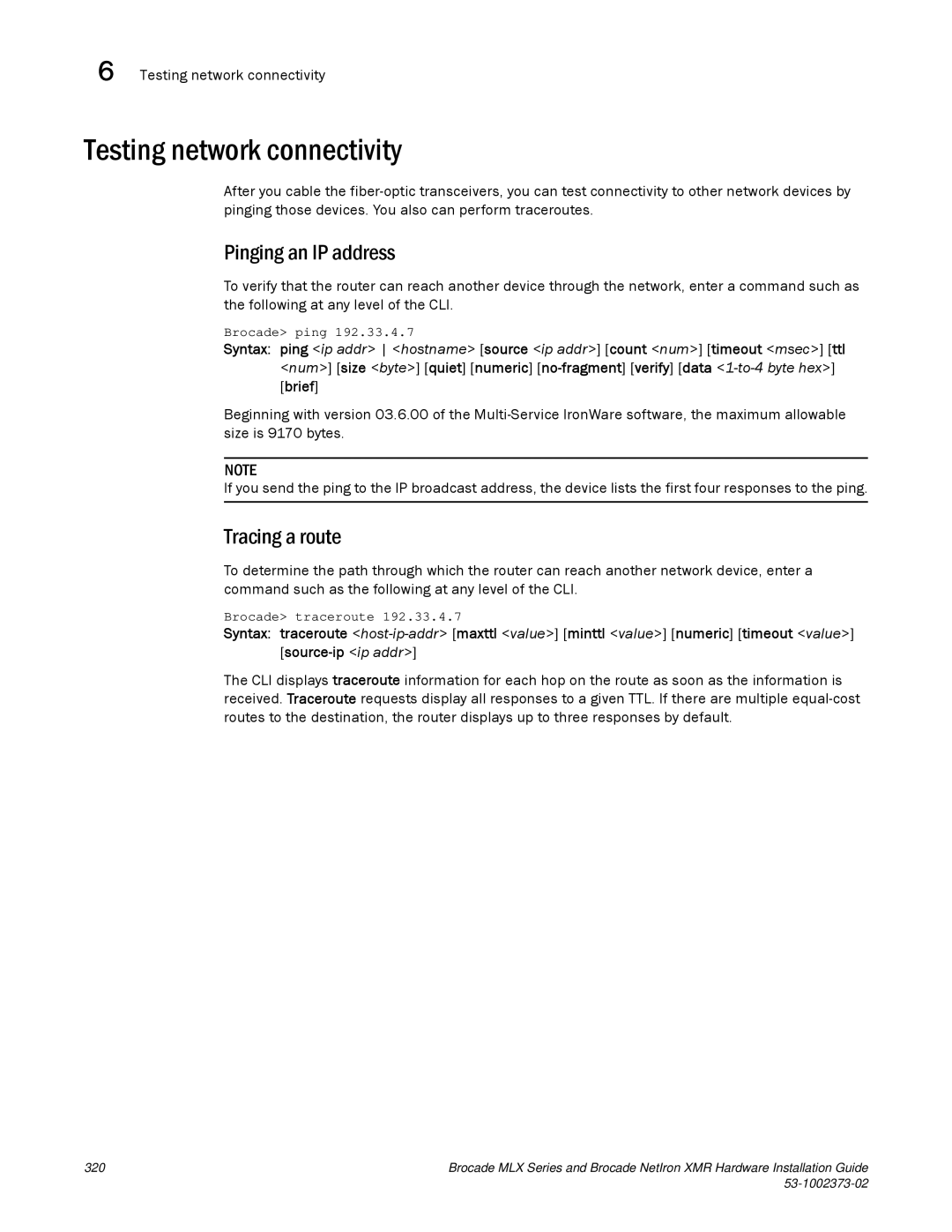6 Testing network connectivity
Testing network connectivity
After you cable the
Pinging an IP address
To verify that the router can reach another device through the network, enter a command such as the following at any level of the CLI.
Brocade> ping 192.33.4.7
Syntax: ping <ip addr> <hostname> [source <ip addr>] [count <num>] [timeout <msec>] [ttl <num>] [size <byte>] [quiet] [numeric]
Beginning with version 03.6.00 of the
NOTE
If you send the ping to the IP broadcast address, the device lists the first four responses to the ping.
Tracing a route
To determine the path through which the router can reach another network device, enter a command such as the following at any level of the CLI.
Brocade> traceroute 192.33.4.7
Syntax: traceroute
The CLI displays traceroute information for each hop on the route as soon as the information is received. Traceroute requests display all responses to a given TTL. If there are multiple
320 | Brocade MLX Series and Brocade NetIron XMR Hardware Installation Guide |
|
|
